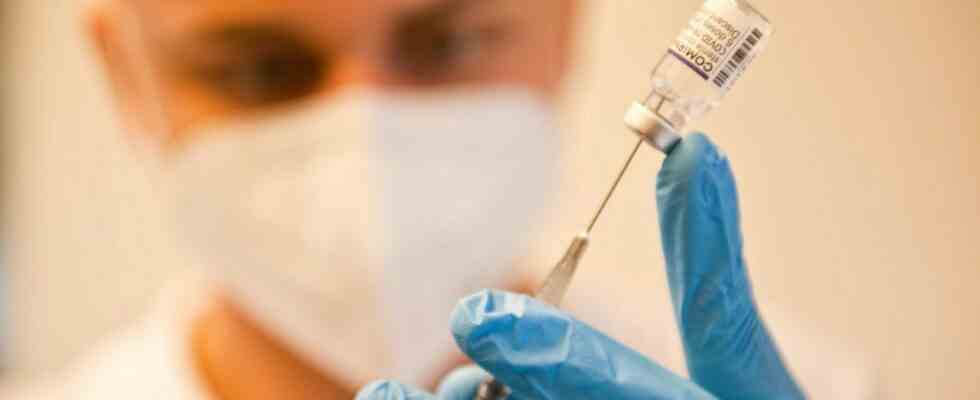The small arrows at the end of the three graphics all point upwards – and that doesn’t bode well for the Ebersberg district. What Brigitte Keller from the district office is holding in her hands is the forecast development of the corona numbers. Of course, the head of department did not just come up with these, but the values are based on the scientifically carried out wastewater tests in three sewage treatment plants in the district. What is easy to see from this: the infection process is picking up speed again here in the region. In the district office, however, people are relaxed and refer to the higher political levels.
There has been a lot of disagreement for weeks about how to go about this year’s Corona autumn. An evaluation of the previous protective measures, which the German Council of Experts intends to present on July 1, could bring a little more clarity. Until then, we have to wait and see. And that’s what you do in the Ebersberg district office. “I will not introduce a mask requirement for Ebersberg if it does not apply throughout Germany,” said District Administrator Robert Niedergesäß (CSU) during a press conference. There are currently no stipulations from the legislature, so his authority has little choice but to appeal to people’s common sense to continue to be careful.
Wastewater monitoring provides information about the future course of infection
The facts are actually on the table in the district office and show where the Corona journey will go in the next few weeks. “We know that the values are increasing,” says Brigitte Keller, referring to the wastewater tests. In so-called monitoring, in which samples are taken from the cities of Ebersberg and Grafing as well as the municipality of Glonn, the district works closely with scientists from the Technical University of Munich. The results are prepared for the district office in the form of recommendations for action, but the ultimate decision on possible measures lies with federal or state politicians.
Brigitte Keller headed the Corona crisis team at the district office for two years.
(Photo: Peter Hinz-Rosin)
For the district of Ebersberg, on the other hand, the utilization of the district clinic is decisive. “And there’s nothing going on at the moment,” says Brigitte Keller. In fact, the number of corona patients was mostly in the single digits recently, and even in the intensive care unit only very rarely do Covid 19 sufferers have to be treated. But it is also true that the number of patients in the hospital is the last of all indicators. While the wastewater monitoring allows a glimpse into the future, the tests provide information about the current status of the infection process. “The clinic is much later,” says Keller. The bottom line is that if the number of infections increases again in the Ebersberg hospital, the train for countermeasures has actually already left.
For the district office, the number of patients in the district clinic is decisive
Nevertheless, in the absence of other specifications, the district office wants to first orientate itself on the district clinic. “If something is going on there again, then we’ll see what we do,” says Keller. You already have a lot of experience in dealing with the virus, “we’ve already been through it all,” said the former head of the Corona crisis team in the district.
For the moment, at least the test and vaccination offer is to be maintained, albeit in a reduced form. From July onwards, the vaccination center in the district town will only be open on Wednesdays, Fridays and Saturdays from 8 a.m. to 6 p.m. The facility is closed on the remaining days. Meanwhile, the diagnostics center, whose contract would have expired at the end of the month, should continue to be operated. This is open daily from 7.30 a.m. to 5 p.m. For a PCR test, however, citizens must register in advance by telephone or e-mail.
There wasn’t much going on in the Ebersberg vaccination center recently.
(Photo: Christian Endt)
“We have adapted the offer to the demand,” says District Administrator Niedergesäß about the reduced opening hours of the vaccination center. But he also emphasizes that the facility can be started up again if necessary, after all the former savings bank building is owned by the district. However, Brigitte Keller qualifies that a return to full operation is not possible from now on. The rooms are available, but the necessary staff must first be found again – “and that’s difficult”.

